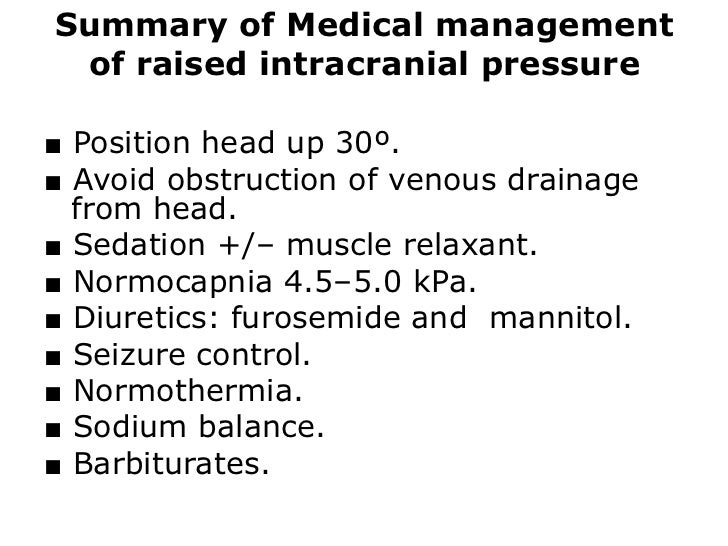Increased Icp Management. Sedation decreases anxiety fear and response to pain all of which increase icp. Treatment of the underlying cause. Elevated intracranial pressure icp is a build up of pressure in the skull. Medical options for treating elevated icp include head of bed elevation iv mannitol hypertonic saline transient hyperventilation barbiturates and if icp remains refractory sedation endotracheal intubation mechanical ventilation and neuromuscular paralysis.

Treatment of the underlying cause. The authors also present an example of an algorithm used within our system of hospitals for managing patients with elevated icp. In this article we will discuss the management of increased intracranial pressure icp so let s get started. Sedation decreases anxiety fear and response to pain all of which increase icp. The ideal treatment of raised intracranial pressure is to find out the cause and treat it accordingly for example csf diversion for hydrocephalus drainage of an abscess removal of a clot or a tumor. Management of elevated icp is in part dependent on the underlying cause.
Recent advances have shown the mortality benefits in appropriately recognizing and treating increased icp.
Treatment of the underlying cause. That s why it s considered a neurological emergency that needs to be addressed as soon as possible. Medical options for treating elevated icp include head of bed elevation iv mannitol hypertonic saline transient hyperventilation barbiturates and if icp remains refractory sedation endotracheal intubation mechanical ventilation and neuromuscular paralysis. Treatment of the underlying cause. Recent advances have shown the mortality benefits in appropriately recognizing and treating increased icp. Management of elevated icp is in part dependent on the underlying cause.